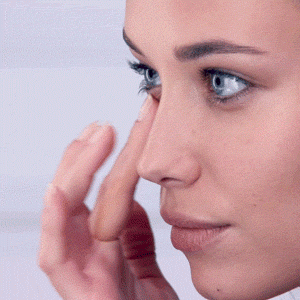
Debunked: 10 Common Retinol Myths That Dermatologist Say Are Not True
Retinol is one of the most potent skincare ingredients to include in any skincare routine. Despite its transformative effects of brightening the skin, improving texture and pigmentation while only using a tiny amount, the ingredient has brought about differing opinions.
Assumptions range from peeling skin to complete sun avoidance, resulting in many steering clear of the product. However, if you’re facing some skin concerns and are reconsidering retinol your solution consider the fact that retinol use has been myth-ified.
This article will provide you with the clarity you finally need. It explores retinol’s compatibility with sensitive skin, how to use it, and more by addressing ten common myths about retinol debunked by Dermatologists.
All Retinoids Are The Same
To effectively incorporate retinoids into your skincare routine, you first need to understand the different options out there. Retinoids are derived from the Vitamin A compounds and can be given as a prescription featuring ingredients such as Tretinoin and Isotretinoin.
Prescription retinol is more potent and works on a cellular level to tackle specific issues such as psoriasis or treat acne. Non-prescription retinol is more gentle on the skin, fighting visible signs of aging such as fine lines.
Retinol Thins The Skin
This is a commonly held misconception due to the common side effect experienced when using retinol for the first time, skin peeling. Therefore it is untrue as retinol encourages collagen production that thickens skin, thus slowing down the aging process.
Also, while the thought of your skin peeling could be scary, retinol only removes the very top layer. Removal of the top layer is very beneficial to the skin because it prevents pores’ clogging and reduces dead skin cells’ retention.
Retinoids Exfoliate The Skin

When using retinol, the skin exhibits signs of irritation and begins peeling, resulting in many assuming retinol is exfoliating their skin. This is false. Peeling skin is only a side effect. Please note retinol is not an alpha-hydroxy acid that exfoliates the skin.
The noted side effects will gradually disappear on their own as the skin finally learns to regulate itself. Retinol is an antioxidant from the Vitamin A family, smoothing the skin and reducing hyperpigmentation, thus inducing skin restoration.
Avoid Putting Retinoids Around Your Eyes

Since the eye area is the most susceptible to having wrinkles showing early signs of aging, you can put retinol around the eye area. Studies have shown people who put retinoids around their eye area have the best results.
The skin around the eye is very thin, making it have a greater capacity to absorb products. However, before applying, ensure first to moisturize since irritation can occur around that area, and always use sunscreen.
Always Apply Retinoids To Dry Skin
No study has been conducted to prove that applying retinol on either dry or damp skin will increase the potency. In fact, for those who have sensitive skin, waiting till your skin is dry will likely irritate due to the limited penetration.
Despite your skin being in a damp or wet state, the application of retinol while in either state will not determine how well the ingredient will work on your skin. This will only depend on your skin make-up and the retinoid receptors.
Retinol Causes Sun Damage

Retinol is sold in opaque or metal containers because it breaks down in the sun and that is why it is mostly advised to be used only during the nighttime. Therefore, avoiding time in the sun is not necessary.
However, this is not an excuse to avoid taking necessary precautions. Please apply sunscreen daily to prevent sun damage. Sun damage is known as the cause of signs of external aging and can make your skincare efforts counterproductive.
Retinol Must Be High-Strength
Many assume they should use more potent retinoids in hopes of better and faster results, which is a misconception. Using this route will do the opposite, resulting in irritated skin and other frustrating side effects. Therefore it would be better to build a tolerance to retinol.
Use a lower strength product for several weeks before transitioning to daily use. Even those with sensitive skin should not shy away from using lower strength retinoids which will provide them with mild benefits while escaping the side effects.
Retinol Can't Be Mixed with Vitamin C
Another common misconception is that individually retinol and vitamin C are very powerful products, therefore pairing them will be very harsh on the skin. This however is false since there are products in the market combined with both ingredients, creating exciting benefits.
Many believe falsely that Vitamin C is very acidic consequently reducing the effectiveness of Vitamin A. Studies have however proven once both retinol and Vitamin C are combined, they manage to stabilize and compliment each other.
Don’t Apply If Skin gets Irritated

While using retinoids, please keep in mind that things will get worse before they get better. When using the product for the first time, peeling, tightness, redness and your skin getting dry are side effects that will flare-up.
The skin will try to build tolerance for up to three weeks to adapt to the retinoids, but if you feel the discomfort has taken a long time to clear, switch to a lower strength. This should, however, not deter you from using retinol because your skin will look amazing afterward.
Prescription Retinol is Better Than OTC
You’ve read the many retinol benefits and are considering rushing to your dermatologist for the strongest dose. Please consider your skincare goals first. Prescription retinol is more potent but usually catered to a specific treatment.
Over-the-counter, options are great for incorporating into your skincare routine since they are gentler and are anti-aging. Therefore, before rushing for potent retinol prescriptions, consider the gentler over-the-counter alternatives against what you want to achieve.